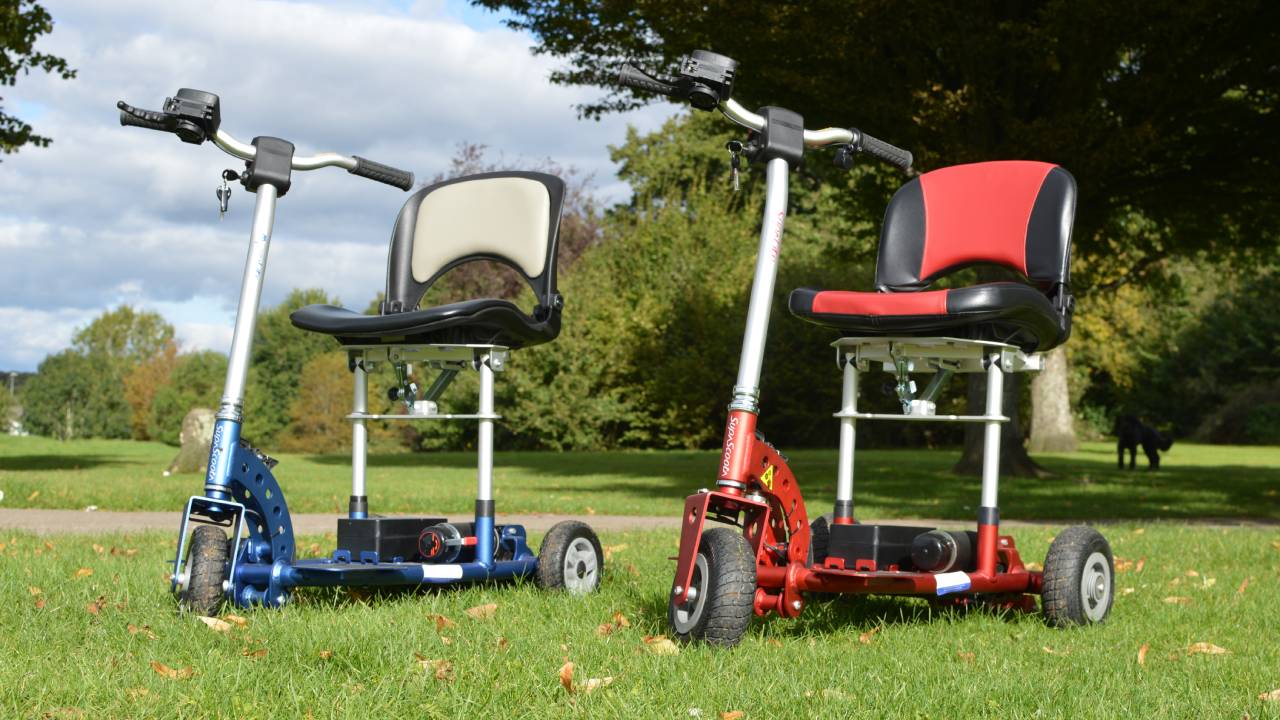What to consider when buying a mobility scooter
Mobility scooters have the potential to revolutionise people’s lives by giving them back the freedom they may have lost – either due to illness, injury, or age. Customers who buy mobility scooters could regain their independence and ability to continue enjoying most of their favourite activities, without the stress of how to get out or having to rely on other people for help.
If you are considering buying a mobility scooter for the first time, you might be wondering how the process works and how to choose the right product for you.

Things to consider
Mobility scooters are practical devices that can aid people with reduced mobility, but there are many factors that need to be considered to avoid choosing a scooter unsuitable for your needs. A mobility scooters is not a “one size fits all” product. For instance, a heavy-duty scooter might be ideal for someone who likes to go out regularly on walks with their family and still has some mobility but struggles with uneven terrain, but that same scooter might not be a good fit for someone who has very limited mobility, who needs it to go in their car boot and who can’t lift much weight; who predominantly wants a scooter to go shopping with.
Things to consider:
Intended usage – probably one of the most important things to consider is what you will be using the scooter for and where you plan to use it most often? If the scooter is primarily for indoor use, for example a shopping centre, you may feel that a three-wheel scooter would have better manoeuvrability. If you prefer a four-wheel scooter, you may want to consider a scooter with smaller wheels and a tighter turning circle. SupaScoota offers scooters such as the MicroLite, SupaLite, and SupaLite 4, would be ideal this purpose (subject to suitability ie user weight, lifting capacity etc).
Before purchasing, it is important to check that the dimensions and specification of the scooter are suitable for the intended purposes. For outdoor use, a four-wheeled scooter may be a better option for rougher terrain as larger wheels can make the ride smoother and more comfortable for the user.
If you are planning to travel with your scooter, a portable or folding one is most likely the best option. Portable scooters are designs to be more compact, often smaller and lighter, making them easier to transport from place to place. Some are also available with a flight friendly battery to take on holiday. Many portable scooters are capable of being dismantled to make lifting smaller components easier into the boot of a car therefore more manageable.
Fit of the scooter – The way your mobility scooter fits you can affect your comfort when in use, especially for those with specific medical conditions. There are many aspects – such as, leg room and whether there is an adjustable tiller to alter how far away the controls are, even a swivel seat – they all play a part in the level of comfort provides to its user. All of these features need to be considered before making the purchase as these can all lead to further problems affecting your physical health. The ideal mobility scooter fit should be determined through an assessment, which needs to be performed in person to establish that the right decision is reached.
The best way to determine the ideal mobility scooter for you is to visit a showroom and get an assessment from fully trained and knowledgeable staff. You can also have the opportunity to test drive many options to make sure you feel safe and comfortable and if applicable, you can manage to get it into your car.
Portability and Storage – if you plan on travelling by car, public transport, aeroplane, or cruise ship with your mobility scooter, a portable or folding mobility scooter will be the best option as the scooters are usually compact, foldable, or can easily disassemble. It is important to think about the weight of the heaviest part to make sure you will be capable of lifting it yourself – or with the help of another – or if you need to look at fitting a car hoist.
Another important thing to consider is storage. You need to make sure that you have a big enough space near a plug socket so it can charge, or you may need the scooter to have a detachable battery that can be charged off the scooter. As well as charging, you need to keep it dry and make sure you have a space big enough to store the mobility scooter when it is not in use. Portable and folding scooters tend to take up less space.
Scooter Range – how far do you intend to go with your mobility scooter? You need to check that the scooter you intend to buy is capable of traversing the distance you will be making on a daily or trip-by-trip basis.
Keep in mind that factors such as hills, user weight (plus any extras you may be carrying) and age of the battery can all influence the scooter’s performance and range, it is worth noting that extremes of temperature can also have an impact.
Public Transport – do you require use of public transport regularly? Every transport service has it’s own rules and regulations regarding the use of mobility aids, so if you use a particular provider often it would be advisable to check out their Mobility Policy prior to searching for your new scooter.
After Care and Servicing – any mobility scooter you buy will need to be kept in good condition to provide the performance you need and expect. You need to be familiar of how to properly care for the specific battery type that your chosen scooter uses, and make sure you are capable of properly managing the required care.
It is generally recommended that you have your scooter serviced once a year. This is to make sure that your scooter is kept in good condition, and if any faults are found, they can be repaired before it causes more damage and becomes a much larger and more expensive job. A basic service can cost, on average, between £55 and £100 – depending on the size and complexity of the scooter. You should take this into consideration so you can make sure you will be able to afford this.
Generally, there are so many factors that will determine the right and most suitable mobility scooter for you. The most important place to start is with a proper assessment from a company that can offer you choices and deliver the highest ethical sales process and aftercare.

What battery can I use for my lightweight mobility scooter? Which battery is best?

Taking your lightweight mobility scooter on an aeroplane. Thinking of flying?

Do we need a Highway Code for mobility scooter users? Mobility Highway Code

What does a home demonstration involve? Home Demonstrations
Read more mobility articles



